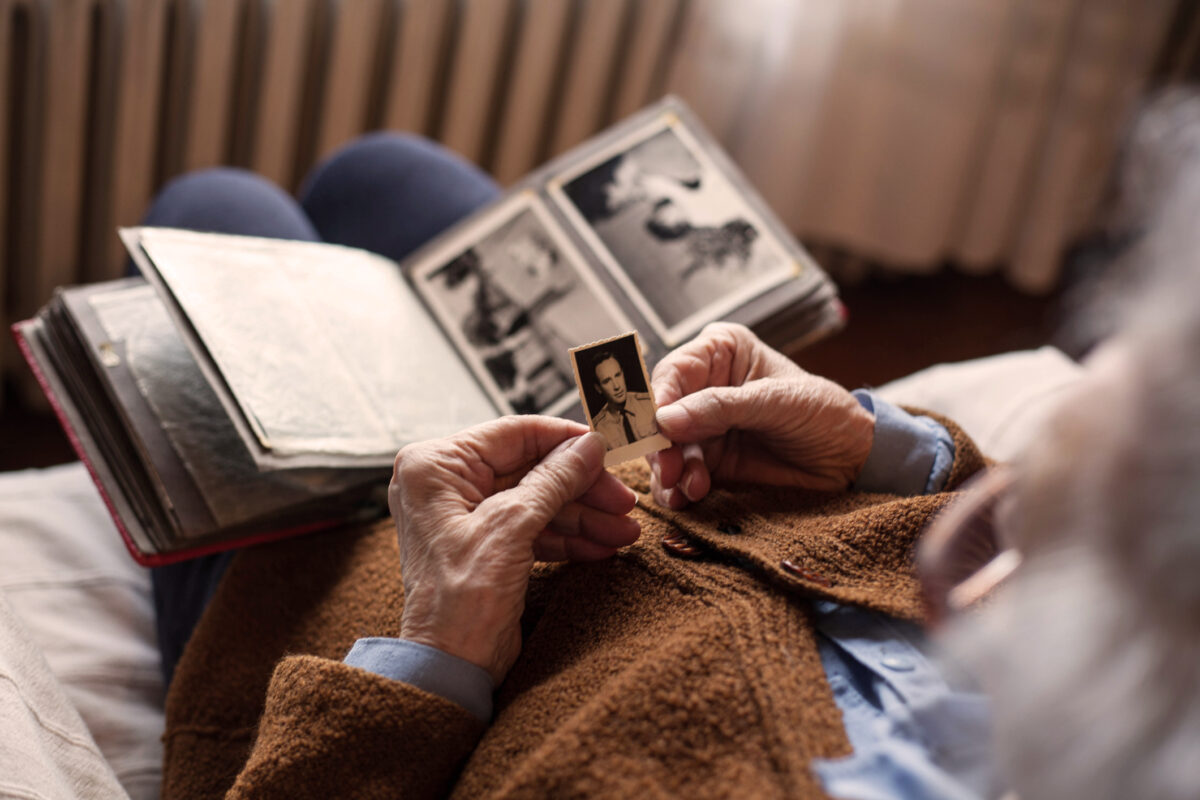Many people have embraced the online world, and everything else that has come with it, from smartphones to social media, because it has made our lives faster and easier.
But are our lives really any simpler? If you’re like most people, your online life probably isn’t any cleaner or less cluttered than your offline life. So if you often forget your passwords, misplace your photos, or fear that your accounts might be hacked, try these strategies. They may help you declutter your online, and your offline, life.
Backup Everything
You’ve probably heard a million times that it’s important to back up your files (including your photos), but how do you actually do that?
“At one point this was hard, but the internet makes it easy. If you can click a mouse, you can back up your computer,” says Dave Greenbaum, who owns DoctorDave Computer Repair in Lawrence, Kansas and has been fixing computers since 1980.
Greenbaum recommends that you find an online service that will back up everything on your computer automatically through the internet.
“These are cloud-based backups. They all cost around $50 a year per computer,” Greenbaum says. “I like Backblaze, but there is also Carbonite, Crashplan and Mozy.”And once you install a service, it will copy all of your changes to your files, documents, photos and so on while your computer sits idle.
“Some people are wary of sending personal data over the internet, but it’s all protected in transit. The key is to have a good password to that stuff, so a hacker can’t get into it. That’s true everywhere, but especially with backups,” Greenbaum says.
In addition to backing up your computer through a cloud-based service, consider using an external hard drive as well. An external hard drive can be set up to periodically save new files you have added to your computer automatically.
Use a Password Manager
Just as you know that you should backup your files, you probably also know that it’s important to create a computer password that others would have difficulty figuring out.
Unfortunately, if it’s too complex, you may find that you can’t remember your own password, especially if you have different passwords for different accounts (as you’re supposed to).
That’s why Katie Mazzocco, a former professional organizer turned small business systems and productivity expert who runs FullSpectrumProductivity.com, suggests using a password manager service.
“One of the things I teach my clients is password and data security. It is absolutely essential that consumers and small business owners have policies and procedures in place to safeguard themselves,” Mazzocco advises.
There are numerous companies that will help you manage your passwords. Mazzocco recommends 1Password, with LastPass “being a good second option.” (Greenbaum also gave a shout-out to 1Password with LastPass being his strong second favorite, too.)
Not only do password managers remember your passwords, but many will generate passwords for you as well. There’s no need to spend time brainstorming a clever password, which may have been fun the first time you did it but probably became tiring by your 11,000th time.
Prices for these services vary, but 1Password offers a 30 day free trial, then charges $2.99 per month when billed annually for its service, or you can pay $64.99 for a one-time purchase. LastPass has a free trial as well as a $24 yearly premium service.
Organize Your Photos
If you take pictures using a digital camera, smartphone, tablet or some other device, the odds are good that some of your photos are saved to your computer. Others are probably scattered across social media sites like Facebook or in old emails that you hope you don’t delete before you remember to download the photos.
If you’re discouraged about your photo situation, Bonnie Joy Dewkett, a certified professional organizer in New York City who runs The Joyful Organizer, has these three ideas for you.
- Don’t wait to upload your photos. When you come home from a party or a trip, save your photos to your computer, clear your memory card and put it back in your camera. That way, your memories will be safe, and you won’t have to delete photos later on to make room on your camera.
- Organize your photos. When you upload your photos, don’t just drop them into a catch-all folder. Organize them so that they’re easy to find and review. “Start with the photos you most recently took,” Dewkett advises. “You’re going to remember the events in the greatest detail and they will be the easiest to catalog.” And whether you choose to catalog them by events, locations or time, “pick an organization strategy and stick [with] it,” Dewkett adds.
- Put your digital photos into digital photo books. Even though the photos are digital, that doesn’t mean that you can’t have an album. There are plenty of sites where you can upload your photos to create a digital photo book. “Not only are they easy to make, they are cost-effective to print, they can fit in a lot of photos and you can print multiples to give as gifts,” Dewkett says.
Organize Your Music
This can become complicated quickly, especially if you have a diverse and growing music library. Luckily, there are services to help you organize your songs.
MusicBrainz is a well-regarded one; it’s free, and it has apps, most of which are also free, that use MusicBrainz’s immense database to identify and tag your music. TuneUp is also a good option for organizing a music library without much effort on your part. You can purchase an annual subscription for $39.95. It will, among other things, rename mislabeled songs, find album cover art, free up space on your computer by eliminating duplicate tracks and will even send you extras like concert alerts.
And, if you don’t have one already, you might want to subscribe to a streaming music service. Google Play Music, Pandora, Spotify and Amazon Prime Music (free for Amazon Prime account members) are some of the most popular options. These sites can be great for listening to songs as you would over the radio, buying or downloading new songs and organizing your music library. Prices vary for these services but expect to pay about $10 a month.
Digitize More of Your Physical Life
While you’re working on organizing your digital photos, Dewkett suggests digitizing any physical photos that aren’t already stored on your computer. That may sound like an overwhelming suggestion, especially if you haven’t consistently categorized your photos, but the goal here is to create a database of all your photos.
This doesn’t mean that you’ll have to spend hours digitizing the photos. New scanners can scan several photos at once with a single click. And “if you have a [backlog] of physical photos, pay a scanning service, or a high school or college student to do the scanning for you,” Dewkett suggests.
But don’t stop with your albums. You can save other parts of your life to your digital world. For instance, many professional organizers suggest taking photos of items in your house that you know you should give away or throw out, like outdated clothing that you never plan on wearing again or musty childhood stuffed animals. You can get rid of the item, but keep the memory.
The same basic principle also works for anyone with children or grandkids, along with closets or drawers full of artwork and school papers that they simply can’t bear to toss.
Michelle Drouin is a developmental relationship psychologist at Indiana University-Purdue University in Fort Wayne, Indiana, and the mother of two young sons.
“They draw at home. They draw on trips. They draw in school. My children are more prolific than Picasso,” Drouin says.
She swears by Artkive, a digital storage and sharing app.
“I just snap a picture, select the child it belongs to, and voila! It uploads to their system, and I toss the original into the recycling bin. Sure—I keep a few great pieces in frames in the kids’ rooms, but I have absolutely no guilt in tossing the rest,” Drouin says. “One day, my sons will have this organized online repository of their glorious works. And today, mommy has a magnet-free refrigerator.”
Rein in Your Kids (and Yourself)
Don’t make the mistake of thinking that just because your children have grown up with technology, that they know everything about the internet. They know a lot, but if they’re downloading free computer games, music or movies, they may be providing viruses with access to their devices—or yours, if you’re sharing your computer.
Social Media
And if your children or teenagers are posting on social media, you’ll want to have a talk with them, advises Denise Lisi DeRosa, who owns Cyber Sensible, LLC, which is based in Bethesda, Maryland.
DeRosa, who has three kids, often speaks to schools, PTAs, parenting groups and sometimes new hires at companies, discussing how to use the internet safely.
When it comes to monitoring what your children are posting on social media, she suggests that parents shouldn’t overdo it on the lectures.
“I don’t think it’s ever too early to have the conversation about it being important to think about what someone who doesn’t know you, what they might think if they were to look at your profile. But at the same time, if you have, say, a 13 or 14-year-old, you shouldn’t pressure them into resume building on the internet. Kids need to be allowed to be kids,” DeRosa says.
But she adds that good decision-making in the age of social media can be a challenge.
“When we were kids, if you made a mistake, it would be quickly forgotten,” DeRosa recalls, noting that today’s kids aren’t so fortunate.
And she advises high schoolers to think about what they post because while a potential employer may never find it, or may not care to look, college admissions officers probably will.
“I don’t think they’re necessarily looking to catch someone doing something bad, but it’s more about seeing if the person will fit into the college. And if you say you do a lot of community work, for instance, college admissions officers are going to check and see if there’s evidence of that,” she warns.
And don’t forget about what you are posting. Parents often tend to overshare, sending photos of their kids to just about every corner of the internet, but also posting details about their children’s lives.
“If you’re sharing too much or too often, once your kid is older, even if you aren’t sharing anything bad, you’re leaving them a legacy that they need to deal with,” DeRosa says.
Technology is Rapidly Changing
It might seem crazy that even though the internet has been around for 20 or so years, many of us don’t have a handle on our digital lives yet. But DeRosa is sympathetic.
“It’s changing so fast,” she says of our digital lives. “So every time you have a handle on something, there’s something new out there. When we first started using email to communicate, you had to kind of learn the social etiquette, and then before you knew it, there was Instant Messaging and then chat rooms. We’re constantly building on these technologies and then advancing them. It’s really hard to keep up.”
Disclaimer: The Hartford does not endorse or have associations with any of the products and/or services referenced. This article is for informational purposes only.







GOOD READING….ENJOYED ALL THE SECURITY ADVICE